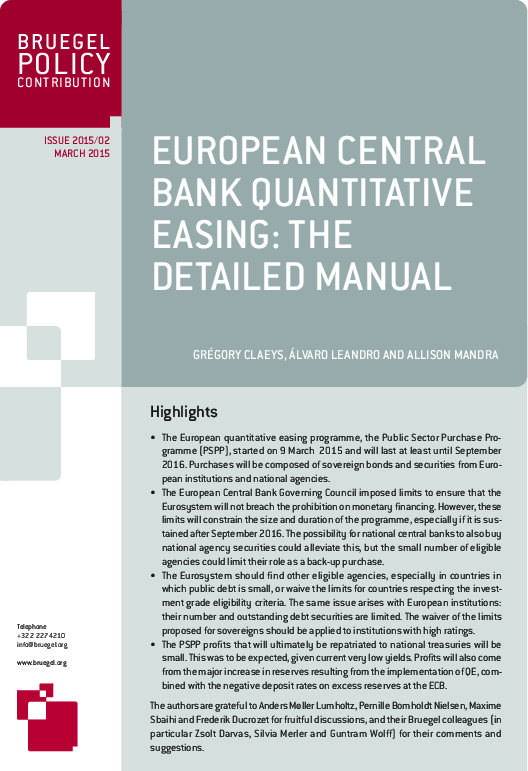Policy Contribution
European Central Bank quantitative easing: the detailed manual
This Policy Contribution examines the detail of how quantitative easing will actually take place in the euro area and its implications, following the European Central Bank's announcement in January 2015 of a massive expansion of its asset purchase programme.
- The European quantitative easing programme, the Public Sector Purchase Programme (PSPP), started on 9 March 2015 and will last at least until September 2016. Purchases will be composed of sovereign bonds and securities from European institutions and national agencies.
- The European Central Bank Governing Council imposed limits to ensure that the Eurosystem will not breach the prohibition on monetary financing. However, these limits will constrain the size and duration of the programme, especially if it is sustained after September 2016. The possibility for national central banks to also buy national agency securities could alleviate this, but the small number of eligible agencies could limit their role as a back-up purchase.
- The Eurosystem should find other eligible agencies, especially in countries in which public debt is small, or waive the limits for countries respecting the investment grade eligibility criteria. The same issue arises with European institutions: their number and outstanding debt securities are limited. The waiver of the limits proposed for sovereigns should be applied to institutions with high ratings.
- The PSPP profits that will ultimately be repatriated to national treasuries will be small. This was to be expected, given current very low yields. Profits will also come from the major increase in reserves resulting from the implementation of QE, combined with the negative deposit rates on excess reserves at the ECB.









